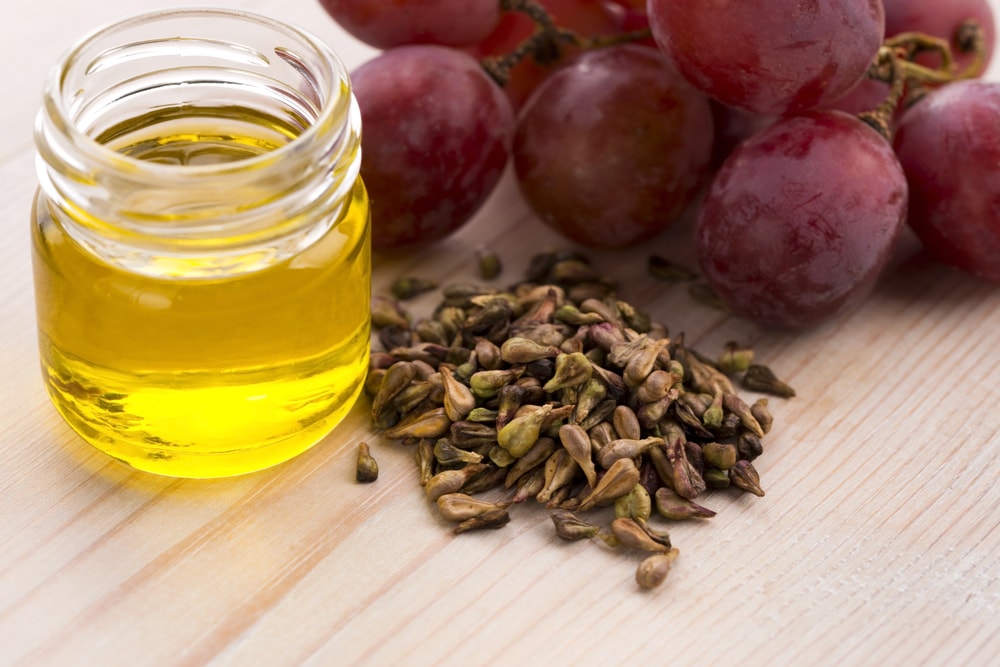A little self-care can go a long way; there are many skincare products that you should start using immediately while others you want to avoid at all costs. You should always read the label of things you put in your body and on your skin. There might be just one ingredient wreaking havoc, and you don’t even realize it. If you want to reverse the hands of time, or at least pause them for a few years, you need to pay more attention to what you are washing your face with or rubbing on your skin.
What you eat will also come out through your skin. From skincare products to food, you can learn what ingredients are healthy for your skin and what ones you never want to use again. Keep reading to learn what elements you should drop and which ones you can add to your skincare routine or diet to make your skin look years younger.

40. Add Grape Tree Oil to Your Skincare Routine
A familiar ingredient in many skincare products, grape seed oil is a natural wonder. After squeezing the grapes and extracting the critical wine ingredient, the seeds contain this oil. It has loads of antioxidants, and linoleic acid reduces acne problems, so it is popular in many moisturizers because it heals while retaining moisture. Grape seed oil also appears in eye cream products because of its anti-inflammatory properties. One of the best perks about the ingredients is that it does not leave residue on the skin (via Cleveland Clinic).
